Featured
Neil Shorthouse on inter-resort collaboration, training locals in Maldives fast-growing tourism industry

When Neil Shorthouse first arrived in the Maldives in early 2008 as the Cluster Director of Human Resources at Anantara Resorts Maldives, the Maldives tourism industry was an altogether different story. New investments, tightly controlled and directed by the government, were made mostly by a handful of seasoned local and foreign hoteliers. Growth was impressive and return on investment was unmatched. But for travellers, accommodation options were limited to luxury resorts that cost tens of thousands of dollars for a night’s stay.
Fast forward 10 years, and the industry has inevitably evolved. A plethora of new properties has come into play, with the backing of a combination of local and international entrepreneurs and seasoned hoteliers. Dozens have forayed into new and untapped segments of the market, greatly expanding the scope of an industry that was previously exclusive to luxury tourism. Tourist arrivals have crossed the one million milestone and is on course to reach an ambitious target of 1.5 million.
This rapid expansion in a short period of time poses several challenges, especially in getting enough skilled individuals to fill up managerial positions. Resorts are forced to bring in professionals from abroad to an industry already dominated by expatriates or promote individuals without giving them proper training and guidance.
“Some people will pick up very quickly and are very good at that role. But some people are put there because there is no one else to do it and they don’t necessarily have the skill set to do their job. This means that if they go to another property, they may actually fail,” Neil, whose 20-year long career in hospitality involves working with a variety of top luxury brands such as Regent Seven Seas, The World, Soneva, Six Senses, Anantara Resorts and Cheval Blanc Randheli by LVMH, says, in an interview with Maldives Insider.

Neil poses for a photo with the participants of a training programme he conducted at the Hulhule Island Hotel (HIH) in Maldives. PHOTO/ HIH
Smaller resorts have to bear the brunt of the current deficit in getting skilled Maldivians for senior positions, as international hotel chains have the luxury of moving employees within its hotel portfolio. For new resorts, especially those owned and operated by up and coming local hoteliers, apprenticeship programmes run by industry leaders could be the answer.
Apprenticeship programmes for the hospitality industry are growing in popularity in countries such as the UK. In the Maldives, Four Seasons and Minor Hotels have been running their own apprenticeship programmes for years, and leading local resort operators such as Universal Resorts are formally getting into the game with their own apprenticeship and internship programmes for aspiring locals. These programmes have already enabled several young Maldivians to enter into the industry; starting at the very bottom and climbing up the ladder to achieve their goals.
“It’s all about getting to understand that when you start from the bottom and move up the ladder in the right pace, you appreciate it far more and you have a better understanding of the operation. So, if you want to be a chef, you start as a commis or in any other similar position. This way, they understand what it’s like to work at the very bottom and to move their way up,” Neil explains.
“What a great place it is to study hospitality when you have over a 100 resorts to get your work experience from. Almost every international brand is here. The experience students will get here in the Maldives is phenomenal.”

Neil conducts a training programme.
However, apprenticeship programmes are not enough to bridge the gap that currently exists, especially in light of the number of new resorts opening up across the Maldives. With dozens more expected to come into market in the next few years, Neil believes that resorts should collaborate with established local educational institutes such as the Faculty of Tourism and Hospitality Studies of The Maldives National University to offer courses as well as internship opportunities.
This collaboration needs to extend to inter-resort cooperation as well. Industry stakeholders should come together, and share information and ideas in an attempt to find ways to better adapt to the fast-changing trends.
“When I first came to the Maldives 10 years ago, it was very collective. Everyone spoke to each other. Everyone was involved and willing to assist. Nobody would say we can’t do this, we can’t do that. We had that trust and respect for each other,” Neil, who has worked in countries such as the UAE, Thailand, Maldives, Sri Lanka, Seychelles and the US, says.
“Nowadays it has become very secular in the sense that only some properties will talk to certain properties, or if there is a request for information, people don’t want to provide information to anymore. With the market becoming so challenging, it’s almost silly that no one speaks to each other and shares ideas. It maybe because it’s growing so big, that there are so many resorts, that it’s becoming more difficult to coordinate. But we need to have the inter-resort collaboration we used to have.”
Despite the challenges, Neil, who now runs his own hospitality consultancy firm Shorthouse Hospitality International (SHI), believes that training locals to take over managerial roles is the only way forward. Having worked with some “phenomenal” Maldivians who have gone onto become General Managers and HR Managers at reputed resorts across the country, he says that Maldivians can do every single task just as well as their colleagues from abroad if given the right skill set and opportunities.
“If you go to Thailand or any other destination, you can see a lot of locals in senior management positions. So, even from the guest perspective, having more locals in your workforce, especially in senior positions, is key. They are coming to the Maldives and they want to see locals. I think guests get more excited when they see that the resident manager is a Maldivian, or when they see a Maldivian chef or a Maldivian GM,” he explains.
“Those of us who are foreigners working here, are here as a guest. We have been given a work permit to work. I try to make sure that there is always a local capable of taking over my position. In my view, it’s all about giving back. It’s all about giving the skill set that they may or may not already have so as to ensure that they succeed.”

Neil (R-5) attends a networking session organised by the Society for Human Resource Management (SHRM) in London. PHOTO/ SHRM
The expansion of the tourism industry is set to continue, as local hoteliers and international hotel chains keep announcing new developments almost every month or so. With these developments, the uniqueness of the Maldives is changing as well; it is no longer the luxury, high-end destination that can only be accessed by the ultra-rich from the world over. New segments such as the booming guesthouse sector have opened up the Maldives to budget travellers and made the luxury resorts more affordable as well.
In this fast-growing industry, cooperation amongst properties and developing a capable workforce comprising a local majority are the key to survival. As Neil says, “We all make mistakes, but we need the opportunity to make mistakes in our career. If you don’t give the opportunity to locals, you won’t know their capacity.”
Editor’s Note: Shorthouse Hospitality International (SHI) is a luxury management and consultancy company headquartered in London, with operations across Europe, Asia, the Middle East, Indian Ocean and South Pacific Islands. SHI provides a hands-on approach to services focused on operations, corporate audits, human capital, and significant projects. Specialty vertical markets include boutique hotels and resorts, cruise lines and private member clubs, yachts and residential estates. Working from an individual project basis to full retained consultancy, SHI assists in identifying “who you are”, “where you want to be” and “how to get there”. The international hotels and resorts and luxury properties are not only each exquisite in their own way; but are all culturally authentic, emotionally compelling and completely unique. SHI was founded by Neil Shorthouse in 2014 following more than two decades of experience in creating industry-leading, revenue driving platforms for companies from start-ups to Fortune 500s. He has launched business endeavours for multi-national corporations and led world-class teams of hospitality professionals. His portfolio includes The Walt Disney Company, Disney Cruise Line, Regent Seven Seas, The Soneva Group, The World, Six Senses Hotels & Resorts and Cheval Blanc Randheli by LVMH-Hotel Management.
Cooking
Patina Maldives hosts Chef Shannon Bennett for exclusive April residency

From 1 to 5 April 2026, Patina Maldives, Fari Islands will host Shannon Bennett, one of Australia’s most recognised culinary figures and the creative force behind Belongil. The residency brings together a chef known for shaping dining as an emotional and reflective experience with a destination defined by perspective, creativity and purpose.
Bennett’s career extends beyond traditional notions of cooking. Through projects such as Vue de Monde and Belongil, he has explored dining as a medium for memory, connection and emotion, placing emphasis on experience rather than consumption. His approach centres on creating moments that remain with guests long after the meal has ended.
At Patina Maldives, the residency represents a convergence of shared values. Over five nights, guests are invited to take part in a limited series of dining experiences shaped by intention, curiosity and a sense of place. Rather than recreating Belongil in another setting, the programme evolves its philosophy, drawing inspiration from the natural rhythm and clarity of the Maldivian environment.
Commenting on the collaboration, Bennett said Belongil was conceived as more than a place to eat, but as a space for ideas, connection and lasting moments. He noted that Patina Maldives reflects a similar sense of purpose, adding that bringing his work into the island setting offered an opportunity to create experiences that feel grounded, honest and meaningful.
Patina Maldives continues to develop its identity by providing a platform for global creative voices to shape new conversations and perspectives. The residency with Bennett aligns with this approach, positioning cuisine as one element within a broader cultural and experiential narrative.
Tom Bray, Director of Lifestyle at Patina Maldives, said the resort exists to bring people closer to ideas, creativity and self-discovery. He added that welcoming Bennett reflects this philosophy, describing the residency as an experience designed to shift perspective rather than focus solely on gastronomy.
The residency is presented as an experience defined by intention rather than spectacle. Taking place over five nights on a single island, it brings together Patina Maldives and one of the culinary world’s most reflective minds for a programme shaped by presence, purpose and a sense of moment that cannot be replicated in the same way again.
Featured
You & Me Maldives unveils curated Premium All Inclusive programme
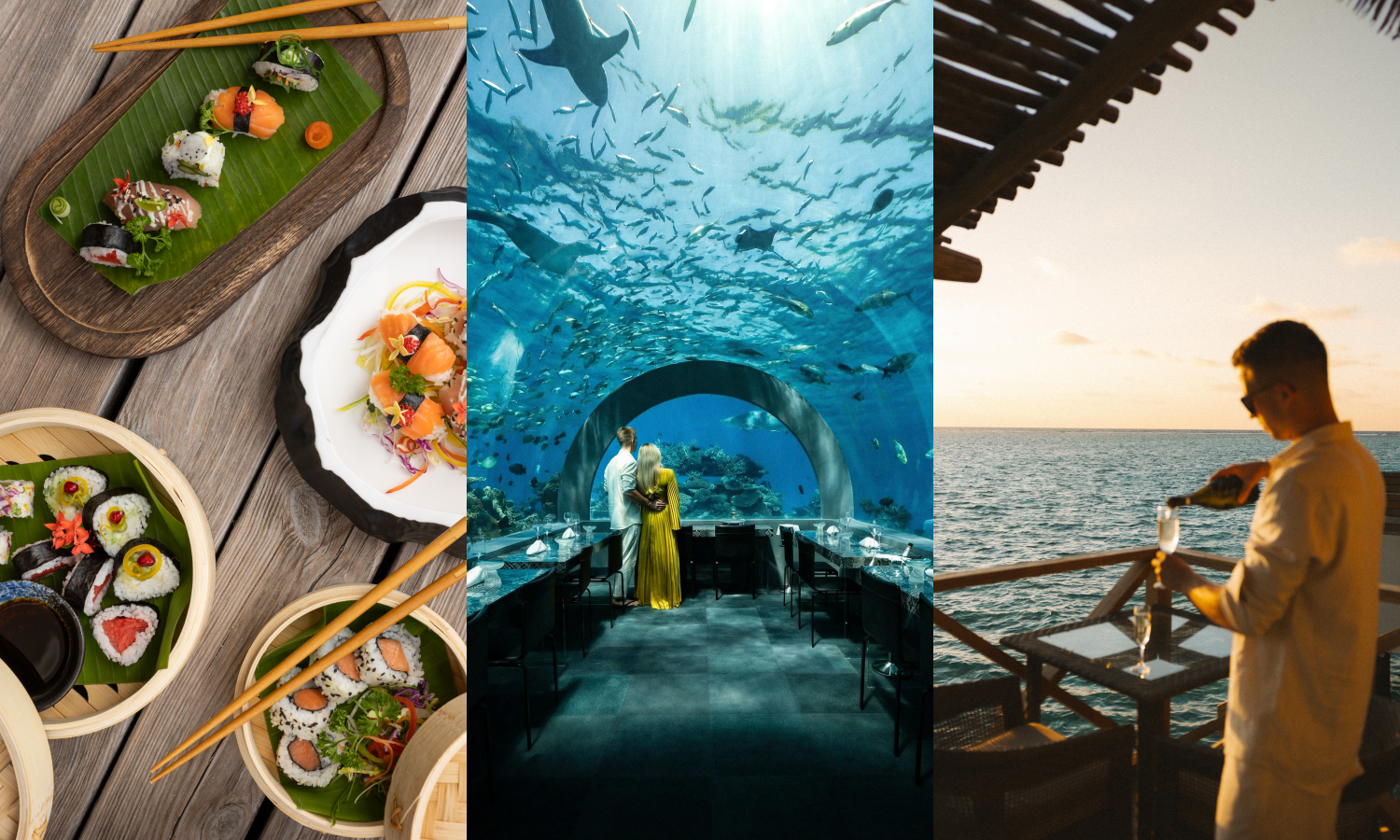
You & Me Maldives, the adults-only luxury retreat under The Cocoon Collection, has announced the launch of its new Premium All Inclusive experience, aimed at enhancing island stays through a more seamless and comprehensive offering in the Indian Ocean.
The Premium All Inclusive experience is designed to begin from the point of arrival. Guests receive complimentary access to The Cocoon Collection Lounge at the seaplane terminal at Velana International Airport, where services are provided to ensure a smooth transition before the journey to the resort.
On arrival at the island, guests are welcomed in their villas with a chilled bottle of sparkling wine and a selection of canapés. The Premium All Inclusive plan includes unlimited premium beverages by the glass, featuring a curated range of wines, signature cocktails, top-shelf spirits, international beers and non-alcoholic options. The in-villa minibar is replenished daily with soft drinks, international beers, red and white wines, as well as assorted snacks. For stays of five nights or more, guests also receive two bottles of premium liquor from a selected list, provided once during the stay.
The experience further includes a range of activities. Guests staying a minimum of three nights are offered one sunset cruise and one snorkelling excursion per stay, while those staying seven nights or more are entitled to a catamaran cruise. Unlimited use of snorkelling equipment and non-motorised water sports, including canoeing, kayaking and paddle boarding, is also included, subject to weather conditions.
Dining forms a central part of the Premium All Inclusive concept. Guests can enjoy three themed dining evenings, including a seafood barbecue under the stars featuring prawns, lobster and oysters. For stays of five nights or more, guests may also take part in a complimentary group cooking class, with a choice between ethnic or Italian cuisine, led by the resort’s culinary team.
Wellness offerings are also incorporated into the programme, with guests able to participate in up to three complimentary sunrise yoga sessions per stay, subject to availability.
The introduction of the Premium All Inclusive experience reflects the resort’s focus on personalised service and carefully curated stays. The offering is positioned to appeal to couples seeking relaxation, romance or activity-led experiences within an adults-only island setting.
Featured
Eid celebrations at SO/ Maldives blend Arabic tradition and Maldivian culture

SO/ Maldives is inviting global travellers this season to reimagine Eid not merely as a holiday, but as an immersive island escape. Located just 15 minutes by speedboat from Malé, the fashion-forward private island retreat sets the stage for a celebration where cultural heritage, contemporary luxury and tropical glamour come together.
At the centre of the festivities is an authentic culinary experience at Hadaba, the resort’s award-winning Arabic restaurant. Guests are offered Levantine flavours, artisanal mezze and traditional recipes presented with a modern approach, creating a setting for shared dining and celebration. As part of the resort’s dine-around concept, Hadaba can be included in a wider culinary journey across the island, allowing guests to experience Arabic cuisine alongside the resort’s other dining venues.
As evening falls, celebrations move to Lazuli Beach Club, where shisha rituals and Arabic-inspired refreshments are served in a beachfront setting. Traditional performances are complemented by Maldivian Boduberu drumming and fire dance displays, creating a cultural programme designed to appeal to international travellers seeking meaningful experiences.
Across the island, Eid is marked through a series of curated activities aimed at encouraging connection and creativity. Cultural workshops, including palm-leaf artistry and henna sessions, offer opportunities to explore heritage, while younger guests are engaged through themed crafts, interactive games and sweet treat decorating. The overall atmosphere remains celebratory while maintaining a relaxed pace that reflects the resort’s character.
Beyond the festive programme, the resort positions the long weekend as a fully immersive island retreat. Guests stay in beach and overwater villas featuring private pools and ocean views, with interiors inspired by high fashion. Time is spent between spa treatments, lagoon activities, beach club experiences and sunset dining, balancing celebration with seclusion.
To mark the season, the resort has introduced two limited-time stay offers. The One Night on Us offer provides savings of 33 per cent on stays of three nights or more, along with daily breakfast, complimentary transfers and spa privileges. The Soo Summer package offers preferential rates combined with spa experiences, curated dining inclusions and additional benefits for water villa stays.
Welcoming travellers from Europe, Asia, the Middle East and beyond, the resort presents Eid as a global celebration where Arabic traditions, Maldivian culture and contemporary design are brought together. This season, guests are invited to exchange routine for island surroundings and experience Eid through a redefined island perspective.
-

 Cooking1 week ago
Cooking1 week agoA spring of flavours: Nowruz dining series at JW Marriott Maldives Resort & Spa
-
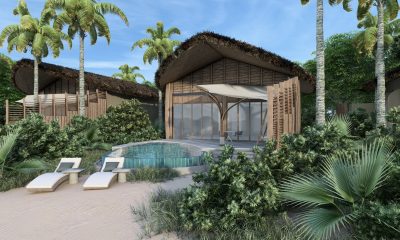
 News1 week ago
News1 week agoPulse Hotels & Resorts unveils Aura Maldives, a mindful luxury sanctuary
-
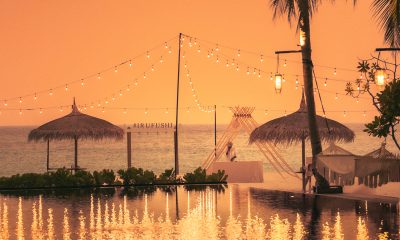
 News1 week ago
News1 week agoSun Siyam Iru Fushi sets new nenchmark with 24 Hour Premium All Inclusive Dine Around
-
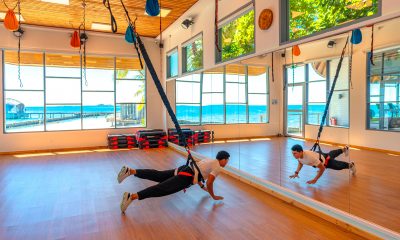
 Fitness1 week ago
Fitness1 week agoOUTRIGGER Maldives Maafushivaru launches expanded wellness programming for 2026
-
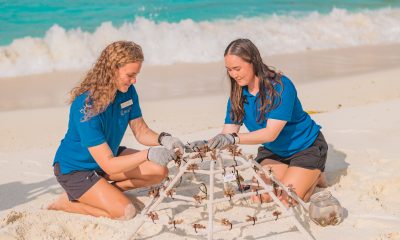
 Action1 week ago
Action1 week agoSheraton Maldives Full Moon celebrates sixth anniversary of Reefscapers collaboration
-
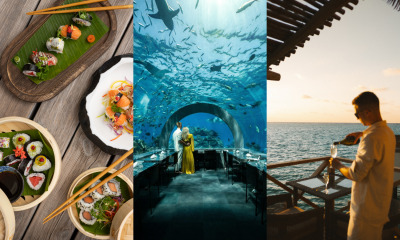
 Featured1 week ago
Featured1 week agoYou & Me Maldives unveils curated Premium All Inclusive programme
-
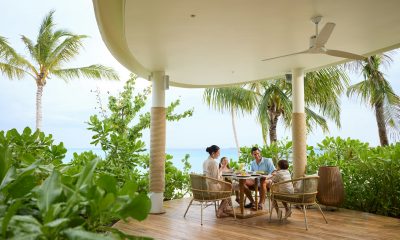
 Awards6 days ago
Awards6 days agoCentara Mirage Lagoon Maldives named Luxury Family Friendly Resort of the Year
-
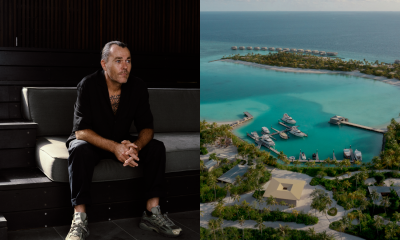
 Cooking1 week ago
Cooking1 week agoPatina Maldives hosts Chef Shannon Bennett for exclusive April residency











